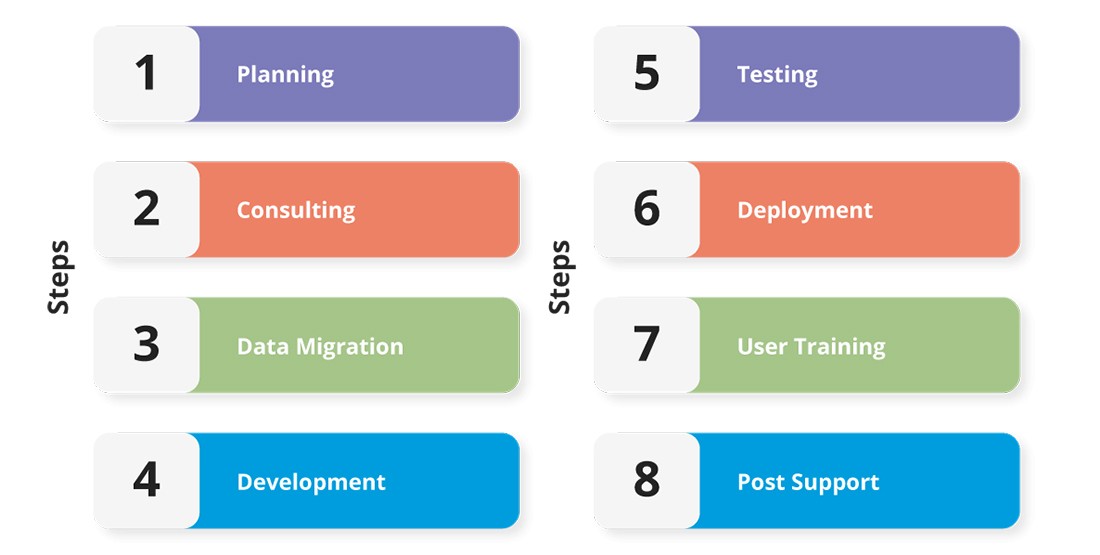- CRM
- 27.10.2022
Understanding Customer Relationship Management (CRM)
Things to consider when implementing a CRM in your company
Dr. Andreas Maier
27.10.2022
“ Learning new systems and processes is not mandatory…but neither is staying in business! “
If you want to run a successful business, it is essential to have a sound customer relationship management system or CRM in place. A CRM can help you keep track of your customers, their needs and wants, and how to best serve them. There are many different CRMs out there, so it is essential to find one that will work well for your business. This blog post will discuss implementing a CRM in your business to improve customer relations and increase sales.
Benefits of Structuring Customer Data
There are many benefits of structuring customer data in a CRM system. Perhaps the most obvious benefit is that it can help sales and marketing teams better understand their customers and target them with more relevant communications. Additionally, having all customer data stored in one place can help to improve customer service by giving support staff quick and easy access to information about a customer's history with the company. Finally, structured customer data can provide valuable insights you can use later to improve business processes and make more informed strategic decisions.
Benefits of Automating Customer Interactions
There are many benefits of automating customer interactions, including:
- Increased Customer Satisfaction: When customers have their questions answered quickly and efficiently, they are more likely to be satisfied with your company.
- Improved Customer Retention: Automating customer interactions can help keep your customers longer, as they will appreciate the streamlined process and quick responses.
- Increased Sales: Quick and efficient customer service can increase sales, as customers are more likely to purchase from companies they trust and feel optimistic about.
- Reduced Costs: Automating customer interactions can save your company money in the long run, as you will not need to hire as many customer service representatives to handle inquiries.
- Improved Efficiency: Automating customer interactions can help you speed up answering customer questions and resolving issues, leading to a more efficient customer service operation overall.
Keeping Data tidy
Data is the lifeblood of any CRM system, and keeping it tidy is crucial to maintaining a healthy database. There are a few key things to keep in mind when it comes to data maintenance:
- Keep your data clean - This may seem like a no-brainer, but it's vital to ensure that all of your Data is accurate and up-to-date. Regularly scrub your database for duplicates, outdated information, and incorrect formatting.
- Stay organized - A well-organized database will be much easier to maintain than a chaotic one. Create clear and concise naming conventions for your fields and records, and consider implementing a data governance policy to keep everyone on the same page.
- Automate where possible - Automating tasks like data entry and cleansing can help free up time for more critical tasks. Look for ways to streamline your processes and use available tools and technologies.
- Monitor performance - Regularly monitor your CRM system's performance to ensure it runs smoothly. Monitoring includes tracking response times, process completion, and error rates. If you notice any issues, take action quickly to address them.
Integration with other ERP features
An effective CRM system will integrate with other features of your ERP to provide a comprehensive view of your customer relationships. This integration can help streamline processes and improve data accuracy by sharing information between systems.
Some of the ERP features that can be integrated with a CRM system include:
- Accounting: Financial data such as invoices, payments, and credit history can be shared between systems to provide a complete picture of customer interactions.
- Inventory: Tracking inventory levels and customer purchase history can help sales teams forecast demand and plan for stock shortages.
- Warehousing: Knowing what products are in stock and where they are located can help speed up the fulfillment process.
- Manufacturing: Production schedules and capacity planning can be coordinated with sales forecasts to ensure that products are available when customers need them.
Better overview of the Sales Cycle
Sales cycles can be long and complex, with many steps and Touchpoints. Implementing a CRM system can help give you a better overview of the sales cycle and help you to keep track of where your customers are in their journey.
A CRM system can help you see which Touchpoints are the most essential and which are causing customers to drop off. It can also help you identify areas where your sales team may need more training or support. By having a clear view of the sales cycle, you can ensure that your team is always working on the most critical tasks and making the best use of their time.
Building long term Customer Relations
Building strong customer relationships is essential for any business, but it can be incredibly challenging for small businesses. Keep these tips in mind to create lasting bonds with your customers:
- Get to know your customers on a personal level. Take the time to learn about their individual needs and preferences.
- Communicate regularly with your customers, both online and offline. Make sure they always feel informed and valued.
- Be responsive to feedback, both positive and negative. Use it as an opportunity to improve your products or services.
- Offer incentives and rewards to loyal customers. They should feel appreciated for their continued support.
- Show your appreciation in small ways, such as sending handwritten thank-you notes or birthday cards. These thoughtful gestures will make a big impression.
What is a good CRM, and why do you need it
A CRM, or customer relationship management system, is a software solution that helps businesses manage their customer data. CRMs typically include contact management, account management, opportunity tracking, and activity tracking.
CRMs are beneficial for businesses of all sizes. They help companies keep track of their customers and better understand their needs. Additionally, CRMs can automate tasks like lead generation and follow-ups, making the sales process more efficient.
When choosing a CRM, it's essential to consider your business's specific needs. There are a variety of CRMs on the market, so it's crucial to select one that offers the features you need. Many CRMs provide different pricing options, so you can choose a subscription that fits your budget – but higher priced system commonly come with features you will unlikely ever need.
If you're unsure where to start, talk to our consultants, who will guide you in finding the right solution for you – and your business.
Also essential is to follow below 8 Steps for a successful CRM integration cycle. These ensure all vital process steps are followed – and the final outcome will satsift you, and your customers.

CRM is a must-have in any company, from SMEs to global corporation
A CRM system is a must-have for any company, from SMEs to multinational corporations. It allows you to manage your customer relationships more effectively and efficiently. In today's competitive business environment, it is essential to have a tool that helps you keep track of your customers' needs and preferences.
A CRM system can help you improve your customer service levels, increase sales and revenue, and better manage your marketing campaigns. It can also help you develop stronger relationships with your customers. In addition, a CRM system can help you save time and money by automating manual tasks associated with customer relationship management. The better solutions will also cater for Marketing automation
If you are considering implementing a CRM system in your company, there are a few things to keep in mind;
First, ensure that your selected system fits your company's specific needs. Many different types of CRM systems are available on the market, so choosing one that will work well for your business is essential.
Second, make sure that the system is easy to use and implement. There is no point in investing in a CRM system if it is difficult to use or takes a long time to implement. Finally, ensure that the selected system has the necessary features and functionality. There is no point in paying for features that you will never use.
If you take the time to find the right CRM system for your company, it will pay off in increased sales and higher customer satisfaction levels – so all the things that make up a good sauce for a growing business!
Conclusion
In conclusion, a CRM can be highly beneficial for your business in terms of efficiency and customer satisfaction. However, it is essential to research and choose the right CRM for your business before implementing it. Once you have found the perfect CRM for your company, take the time to train your employees on how to use it correctly so that you can reap all the benefits that a good Customer Relationship Management Solution has to offer.
Connect with our ERP Consultants to Demo the perfect CRM integrated into SIX ERP – a one-stop-shop solution that connects all the vital parts of CRM for companies with growth ambitions.
About the author
Andreas is a result-oriented CEO who brings nearly 30 years of experience gained in the high-tech industry. His experience ranges up to leading positions in Fortune 100 companies such as rentalcars.com (PCLN) or Intrasoft International, a leading EU based R&D software vendor. He holds a Ph.D. in Neural Networks from the University of Cologne, Germany.
In the past Andreas has successfully founded and co-founded several startups among others XXL Cloud Inc., eShopLeasing Ltd, and WDS Consulting SA. His expertise is strongly focused on modern headless Commerce and the optimization of processes in IT ecosystems.
Related articles

Purchase Management done right
Are you tired of feeling like your purchase management process is a never-ending nightmare? If you're looking for a way to streamline and simplify your approach, you've come to the...
Data-Driven Decision-Making for Business Success
In the digital age, data is the key to success for any business. Companies must effectively use internal and external data sources to make informed decisions that will lead to...



